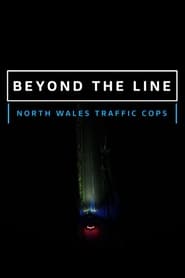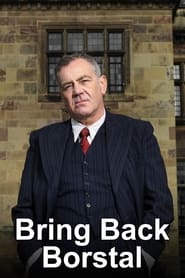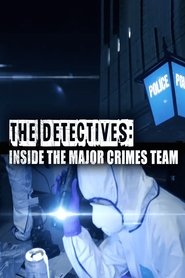Itv1 TV Series - Page 89
-
Ripley and Scuff
0000
Ripley and Scuff
0000
Ripley and Scuff is a children's programme that was produced for ITV's children's strand CITV and originally aired from 7 January 2002 to 28 February 2003. The show is a spin off to the highly successful Roger and the Rottentrolls. -
Wide Awake Club
0000
Wide Awake Club
0000
Wide Awake Club was a children's television series broadcast in the United Kingdom on the breakfast television channel TV-am between 1984 and 1989. -
ITV Nightly News
0000
ITV Nightly News
0000
ITV Nightly News was a 20 minute newscast broadcast between 8 March 1999 – 1 February 2004 as a late evening news programme in the United Kingdom on the ITV network. It aired daily at 11:00pm, and was broadcast from the ITN studios in London. The launch of ITV Nightly News followed major changes to the scheduling of news programmes on ITV which saw the axing of ITN's highly popular and prestigious News at Ten programme which was replaced with the new flagship ITV Evening News programme to be broadcast at 6.30pm on weekdays. The changes proved to be very unpopular with viewers and due to a decline in ratings, ITV moved its late night bulletin back to 10pm for 3 nights a week and the programme was rebranded as ITV News at Ten in 2000. When the bulletin was relaunched at 10pm, the programme was initially successful, although, ratings gradually declined due to the scheduling of the bulletin as it often did not start at 10pm. The BBC also launched its Ten O'Clock News programme in 2000. The final programme aired o -
The Goal Rush
0000
The Goal Rush
0000
The Goal Rush was a live ITV television programme that aired from 2001 to 2003 produced by Granada Television. The programme was broadcast on Saturdays as a rival show to Final Score on BBC One, and provided live football scores from the Premier League and the Football League. ITV ran the programme during the two of the three seasons that it held the rights to show Premier League highlights. After the rights were lost, The Goal Rush was axed. Coverage began on ITV2 and then continued on ITV from 4pm. The programme was presented by Angus Scott. -
Championship Goals
0000
Championship Goals
0000
The Championship was a British football television programme featuring highlights from the Coca Cola Football League. It was almost always shown on Sunday mornings on ITV, presented by Matt Smith. Despite its name, it also covered Football League One and Football League Two matches, albeit to a lesser extent than Championship matches. The show included various additional features since it began in August 2004 and had its format changed due to widespread criticism of the number of commercial breaks. Link scenes usually involved Smith speaking to camera from various parts of the stadium of the featured match, such as the dressing rooms, the referee's office, the boot room, the pie stand and so on. -
ITV News Central
0000
ITV News Central
0000
ITV News Central is a regional television news and current affairs programme, produced by ITV Central, serving the English Midlands. -
ITV News Tyne Tees
0000
ITV News Tyne Tees
0000
ITV News Tyne Tees is a regional television news and current affairs programme, produced by ITV Tyne Tees & Border from its studios in Gateshead, and serving County Durham, North Yorkshire, Northumberland, Teesside and Tyne and Wear. -
Beyond The Line: North Wales's Traffic Cops
2021
star 5A behind the scenes look at the North Wales Roads Policing Unit where 49 officers cover almost 700 miles of road. -
Bring Back Borstal
2015
Bring Back Borstal
2015
In the 1930s, borstal was a much-feared institution designed to reform young offenders by enforcing compulsory work, education, discipline and intense physical activity. In its heyday, the system worked, with low levels of reoffending, in stark contrast to today's statistics. In a social experiment, 13 trouble-makers - some of whom have criminal convictions - volunteer to become borstal boys, spending four weeks in a castle in Northumberland. Will the experience set them on the straight and narrow? Taking on the role of governor is one of the UK's leading criminologists, David Wilson. -
Car Wars
2016
Car Wars
2016
Behind the scenes with officers from Northumbria police force tasked with tackling car crime. -
Learn With Sooty
0000
Learn With Sooty
0000
Learn with Sooty! is part of a British children's television series The Sooty Show promoting educational videos for children to learn from 1989 to 1991. It features the glove puppet characters Sooty, Sweep and Soo, and follows them in their many mischievous adventures. Learn with Sooty! was presented by Matthew Corbett. -
Half Broken Things
0000
Half Broken Things
0000
-
If I Had You
0000
If I Had You
0000
If I Had You is a British television movie featuring Sarah Parish, Poppy Miller, and Paul McGann. Parish stars as the police detective Sharon Myers who moves from a big city back to her small hometown and investigates a murder. It was first broadcast on 7 May 2006 on ITV. The programme was also broadcast in the United States on BBC America on 25 July 2006. -
Richard Hammond's 5 O'Clock Show
0000
Richard Hammond's 5 O'Clock Show was a television programme shown every weekday on the British channel ITV from 3 January until 10 February 2006. The show was presented by Richard Hammond and Mel Giedroyc, and featured a variety of reports on popular and unusual topics. They talked about things that matter to the public, and test claims like "an unstainable suit" or "unbreakable crockery". The show was first aired in 2006 replacing The Paul O'Grady Show, which had moved to Channel 4. -
Farrington of the F.O.
0000
Farrington of the F.O. is a British television comedy series by Dick Sharples about the staff of the British Consulate in "one of the armpits of Latin America". It was produced by Yorkshire Television and broadcast from 1986 to 1987. Its second, and final, series was simply called Farrington. -
Compulsion
0000
Compulsion
0000
Compulsion was a one-off ITV television drama, produced by Size 9 Productions and broadcast on 4 May, 2009. Inspired by the Jacobean tragedy The Changeling by Thomas Middleton and William Rowley, it follows a young female Cambridge graduate called Anjika Indrani and attempts by her father Satvick to force her into a marriage with Hardik despite her existing happy relationship with Alex. It also starred Ray Winstone as Don Flowers, Satvick's chauffeur, and James Floyd as Jaiman. It was originally scheduled to air in Christmas 2008, but was moved to the May Day 2009 date. -
24 Hours with...
0000
24 Hours with...
0000
24 Hours with... is a TV show created by UK production company Hideous Productions for ITV. The shows Executive Producers are Spencer Austin and Harry Harrold, along with Paul Ross for co-production partners Twofour Broadcast. 24 Hours with... is a chat show format as celebrity and interviewer spend an intense 24 hours locked in a room together. Bobby Brown, Laurence Llewelyn-Bowen, Lee Ryan, David Gest, Stan Collymore and Steve-O leave their mobile phones and PR advisers at the door for the first series in the UK. The host, Jamie Campbell can ask them whatever he likes. Each 30-minute show tells the story of their 24 hours in the hot seat, with a digital clock at the bottom of the screen marking the passing of the day. In a bid to make room for poorly rating Tuesday night show Tycoon in its new Monday 10pm slot, 24 Hours with... was removed from its slot. No new time has yet been found for it, although an ITV spokeswoman said it would play out in the future. As of June 2012, ITV has yet to air the remaining e -
Westcountry Live
0000
Westcountry Live
0000
Westcountry Live was the flagship regional news programme of ITV Westcountry, serving South West England. -
The Detectives: Inside the Major Crimes Team
2017
Lancashire Police's major investigation team and the crimes they investigate, such as armed robbery, rape and murder. From the first call to the crime scene, and to charging the suspects, the cameras capture it all. -
Lift Off with Ayshea
0000
Lift Off with Ayshea
0000
"Lift Off with Ayshea" is a British TV show, produced by Granada Television for the ITV network, which ran for 144 editions spanning eight series, between November 1969 and December 1974. Preceded by the show Discotheque, the replacement was originally entitled "Lift Off" and was aired in the children's programming schedule, but was seen by many as ITV's junior answer to the BBC's Top Of The Pops. Ayshea Brough had appeared on the earlier Discotheque in March 1969 and was one of the first women of Asian heritage to front a TV series on British TV, initially co-hosting the show with Graham Bonney and later singer Wally Whyton. The series was produced by Muriel Young, who went on to produce Clapperboard, Shang-A-Lang and Get It Together for ITV Granada. The premise of the show was to showcase music requested by viewers writing in to the series. The requests were interspersed with performances of either new releases or current hits. Generally, only two or three guest acts would appear each week; the majority of the




